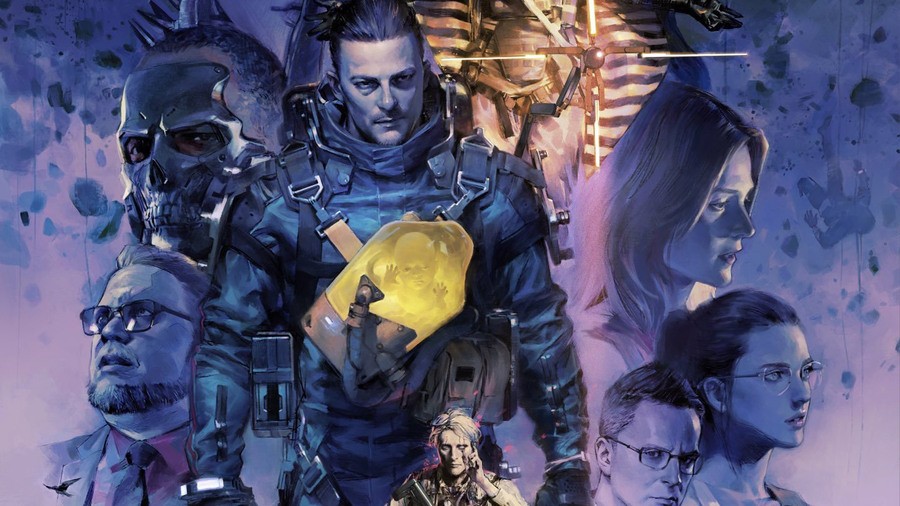
Recently, we had the uniquely exciting opportunity to have a chat with a handful of composers around the industry. Some of them are folks we’ve talked to before, but some are brand new faces! We opted to cover a unique and rather pressing topic this time out -- the ongoing worldwide pandemic. More specifically, the impact that it has had and could have in the future on the game’s industry, and more specifically game music.
For our bevvy of guests we have: Sam Hulick (Mass Effect Trilogy), returning guests Brian Lee White & Brian Trifon, collectively “Finishing Move” (Borderlands 3), and Ludvig Forssell (Death Stranding). The interview will be broken into two chunks: In the first half of the interview, we’ll be talking with the composers more generally about how the pandemic’s been impacting them and what they think of the situation, before going into a second-half with questions more specifically tailored to each individual.
Part One: COVID-19 / The Present and Future of Game Music
Push Square: What have you been working on during the pandemic?
Sam Hulick: When COVID-19 hit, my wife (and co-founder) and I were in the middle of the Techstars startup accelerator for our business ReelCrafter. It’s a 3-month program that provides classes, mentoring, and investment opportunities to tech startups. The program went fully remote in the middle of March when things got serious here in Chicago. Techstars wrapped up at the end of April, and I’ve been working full-time on ReelCrafter since.
We launched ReelCrafter in 2016 as a service for music artists such as composers that allows them to create and send demo reels to potential clients. This is step one—and one of the most important steps—in the process of landing a gig, whether it’s writing music for a video game, film, or TV show.
Finishing Move: We’re quite busy working on a few different game projects, all in various stages of completion. Borderlands 3: Revenge of the Cartels went live in April and our soundtrack to that is available to stream now on all platforms.
Ludvig Forssell: Other than trying to get things in order to be able to work as smoothly as possible during a pandemic, I’ve been busy with updates for Death Stranding’s PC port and a few things I can’t really talk about at this moment, safe to say it’s exciting stuff!
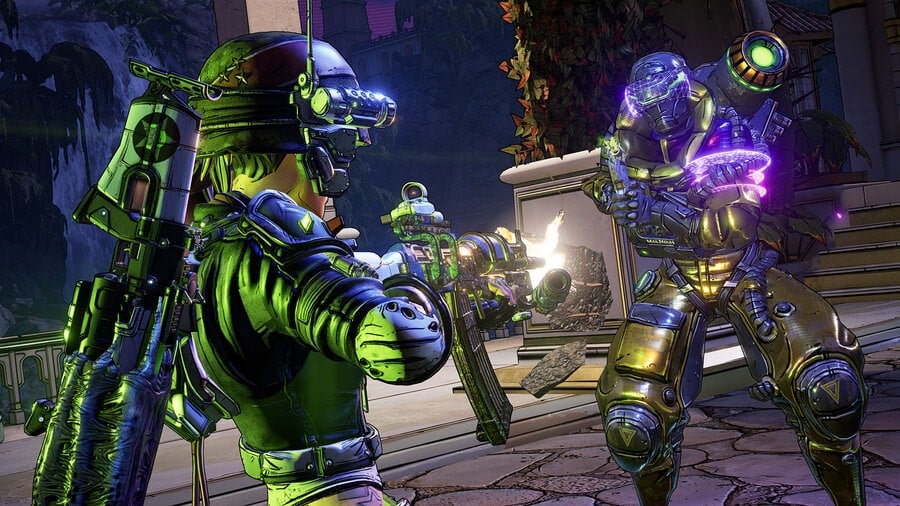
How have you been approaching your work amidst shelter-at-home, or stay indoors orders?
Sam Hulick: Everything I normally work on, whether it’s music or software, has almost always been fully remote, so nothing has changed there! My wife and I have a dedicated home office, which makes it easier to leave work at the end of the day and “commute” to the other side of our condo for the evening.
Finishing Move: We both have home studios, and that is how we’ve always worked, so there has been zero change in how we approach or deliver our work. We generally do most of our source recording and sound design in-house or work with soloists that can self-record, so unlike many orchestral focused composers who need to record larger ensembles, we haven’t had any issues on that front.
Ludvig Forssell: I’m in Japan currently, and while they haven’t been as restrictive as some areas, it still means that I now work completely from my home. It’s been interesting putting together my own home studio for this and it’s honestly quite cozy.
In what ways does that differ from how you usually work? And how do you feel about that? Do you like it more? Less?
Sam Hulick: I think my history of working remotely has made me more tolerant of this temporary situation than most people. We’ve been sheltering-in-place for two months now, and I’m just now getting cabin fever. It’s nice to be able to step away from work and take a break by going to a local restaurant or the coffee shop, but obviously, that’s no longer an option. And the weather hasn’t been nice enough here to go on walks—yet!
Finishing Move: I think most composers we know are pretty used to working alone, even in non-pandemic time. Composing can be a pretty isolating existence. The hardest part is not being able to get out of the studio and hang with your friends after all that isolation.
Ludvig Forssell: First off, it means that there are no two-plus hours of commuting on crowded trains so that’s been an upside, for sure. Now I go for a run in the morning and then hop in my studio room without any hassle. It’s not ideal, but I have to say that in general WFH has been great for me.
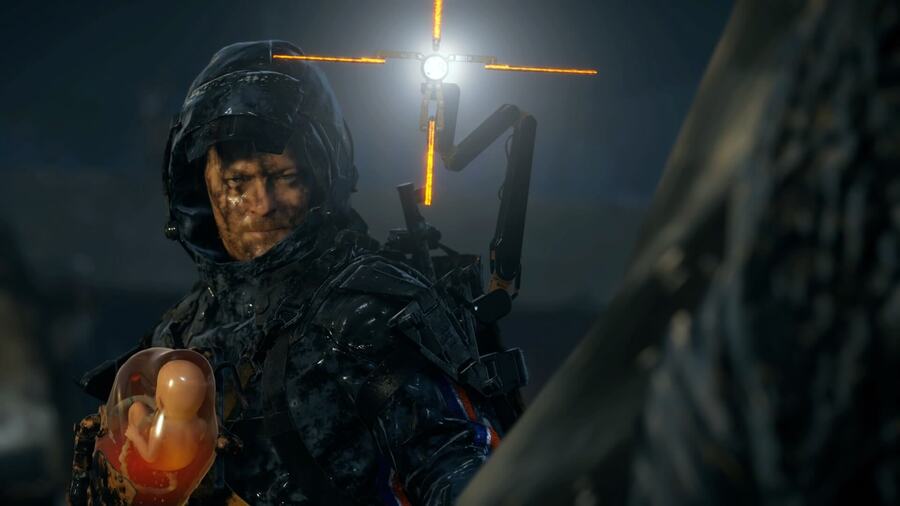
What kind of changes do you foresee, if any, for the industry coming out of this? (The world, in general, is likely to be a very different place after all.
Sam Hulick: For people all around the world, some things will go back to normal and some may never—but I don’t think that’s necessarily a bad thing. For video game companies, and companies in general that build and ship software, many of them are now positioned to function efficiently on a fully remote basis. I think people in management roles are realizing the value of more flexibility, cutting the costs of office space, reducing the stress of daily commutes. So I think we’ll see more emphasis on remote teams and asynchronous communication.
Finishing Move: I think any absolute reliance on physical infrastructure or being in the same physical place at the same time will need to get rethought. Whether it be a commercial studio space or a big recording session on a scoring stage, access to those elements (or lack thereof) has to factor into people’s back up plans. Teams need to be able to do great work remotely, and there are going to be costs and considerations associated with making sure that can work, both from an IT and equipment standpoint, as well as a creative one. This moment in history will have a profound effect on how people plan for a crisis and even the types of projects they are considering. What we define as “risk” will look completely different after all this.
Ludvig Forssell: I really can’t speak for more than my personal experience, but I think there’s a lot to learn from this time and I’m happy to see that there are steps being taken to ensure employees’ safety and structuring new, improved, and flexible systems. Going forward, I hope we will continue to put a focus on an overall better attitude towards work-life balance which is something I think a lot of people can relate to.
Part Two: Let's Get A Bit More Personal
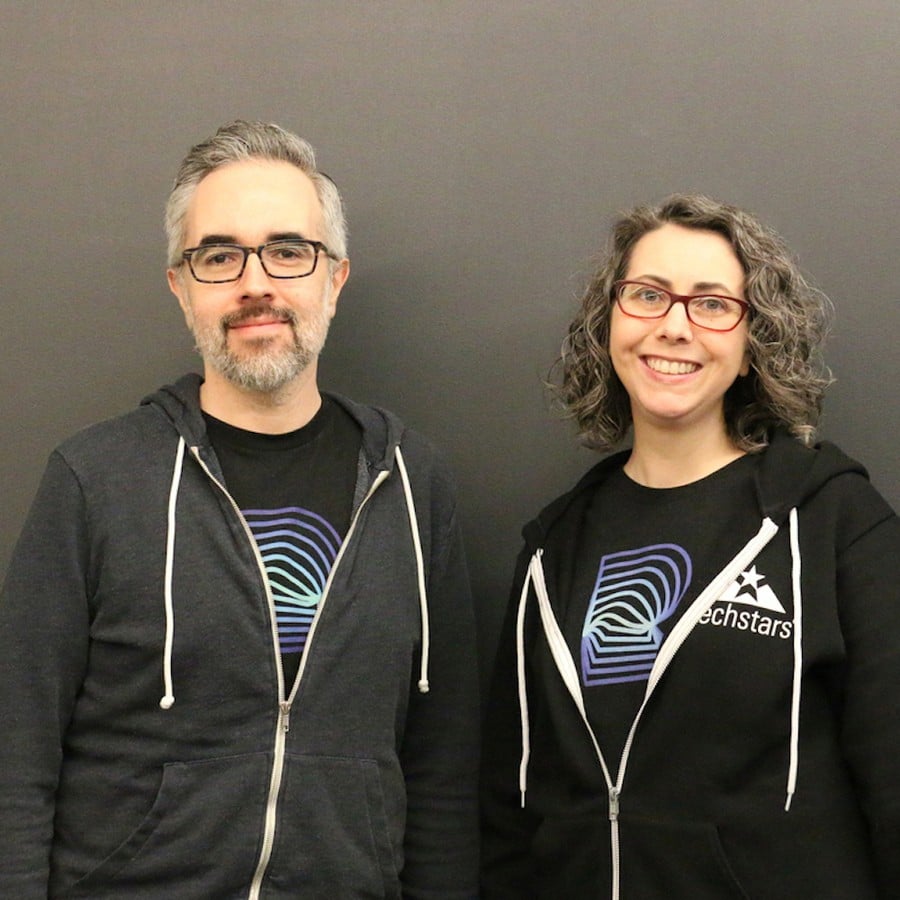
Sam Hulick
It’s been a number of years since the core Mass Effect trilogy has wrapped, but it’s still widely discussed and the music remains an example of the very best that the medium has to offer (the first game remains to this day one of my favorite soundtracks!). How does it feel to have been part of that the whole way through, and to see it spoken of with such love all these years later?
Sam Hulick: It’s amazing! Even after all these years, I still reflect back on the experience and how fortunate I am to have been part of such a widely influential video game. It’s also incredible to get emails from fans who tell me that the music inspired them to pursue a career in writing music for media.
The trilogy has become a true classic, and it’s wonderful to see the story, art, and music inspire future generations. Mass Effect was definitely a landmark in my career.
How did you find yourself scoring games? What brought you into the industry?
I grew up in a musical household, so I was fortunate enough to have access to all kinds of music and recording gear. I started out by making music using trackers like OctaMED on my Commodore Amiga and graduated to an Ensoniq VFX-SD workstation keyboard. I was mostly creating music for the sake of self-expression, but in the back of my mind, I was always really inspired by the music in video games I played when I was younger, like Shadow of the Beast 3, The Faery Tale Adventure, and The Bard’s Tale series.
I started down a path of learning everything I could about making music on a professional level and honing my craft. That led to me my first freelance contracts which eventually led to working on Mass Effect 1 with Jack Wall. The rest is history!
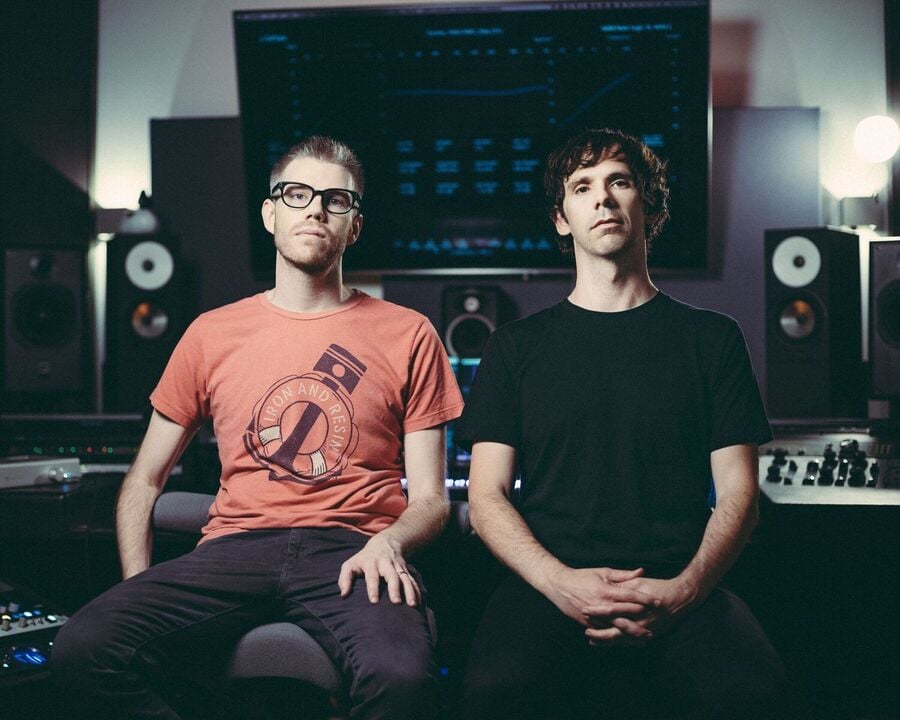
Finishing Move
How has it felt to see the sustained popularity and success of Borderlands 3, as well as its music through these last months?
Finishing Move: It’s been great! The fans have appreciated Gearbox’s commitment to putting out official soundtracks for all the different DLC and events that have come out since the game shipped in 2019. It’s proof that people care about game music and want access to the official soundtrack releases.
Have you come up with any ideas or influences during the pandemic that you might not otherwise have crossed paths with or come up with under regular circumstances? A show that you binged, music you might not otherwise have had the time to listen to, etc.
I got a pretty gnarly case of carpal tunnel from island grinding on the new Animal Crossing, had to give up the Switch entirely for a bit. Games like that shift your perspective on what is “enough sound” or “enough music.” Something is comforting about hearing the exact same sound every time you craft fish bait or shake something out of a tree that is perfect for easing the lockdown panic.
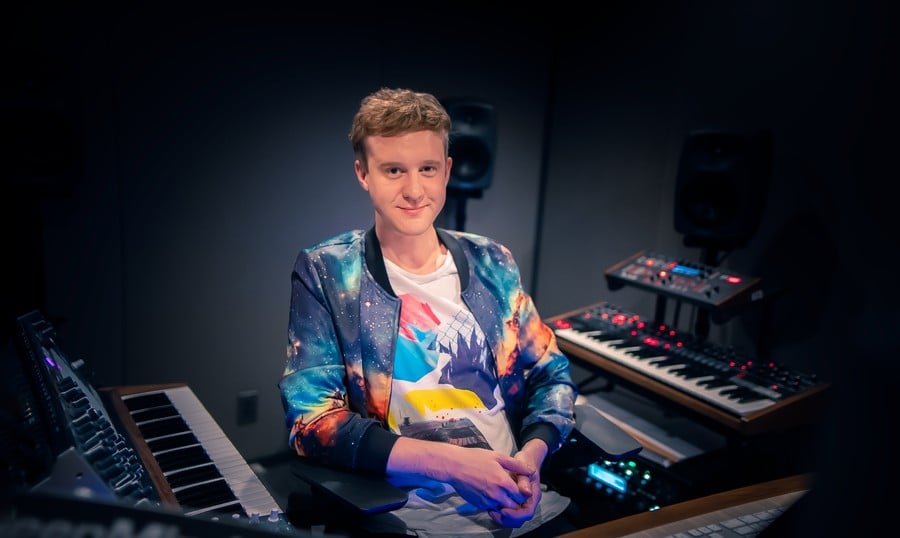
Ludvig Forssell
What most heavily influenced the sound of “Death Stranding”? The sounds and styles of the soundtrack feel as varied and engaging as the ideas broached by the story itself. And what did you do you to ensure it was able to organically transition in tone?
Ludvig Forssell: We knew going into Death Stranding that it was going to prove a challenge, not only in its scope and ambitiousness but also in its many themes and characters. My starting point was that of classic synth-based horror scores like those by John Carpenter and Goblin, and also more recent work like Disasterpeace’s score for It Follows. However, as things started coming together as we were literally building our studio in tandem with the production of Death Stranding, I started to experiment with other elements to highlight the brighter side of the game’s story and world. This is where the more traditional and organic instruments came in. Sort of how Death Stranding conveys a world where life and death - two sides of a coin - are combined, I wanted these somewhat conflicting “chiral” elements to work together (and also in juxtaposition to each other) to create something to better represent the story and the game.
It was then the introduction of the custom sampled “everyday simple objects,” such as chains, frypans, paint rollers, etc. that came along through what I guess was a “Musique concrète” mindset / approach that then helped meld these elements together adding a less refined tone to the traditional instruments while helping to sculpt the synthetic sounds into something more concrete.
I’m really thankful to have been on the project from the very beginning so that I was able to experiment and find the solutions to these musical puzzles. The score didn’t really find itself until the game did, and when it did, I was able to have the overview so that I wasn’t overdoing or under-doing parts on their own as they were mostly already part of a full canvas.
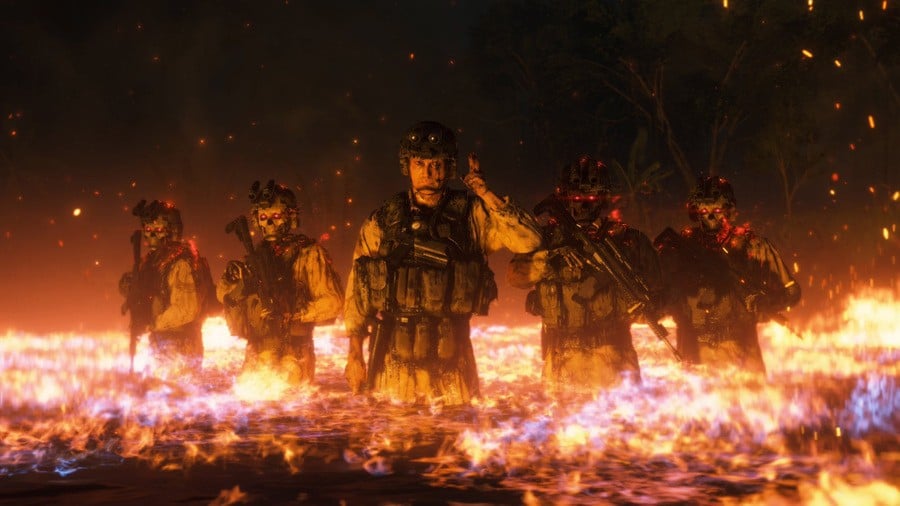
Have you come up with any ideas or influences during the last few months that you might not otherwise have crossed paths with or come up with under regular circumstances? A show that you binged, music you might not otherwise have had the time to listen to, etc.
I wouldn’t say that it’s been due to the pandemic, but I’ve finally had some time to catch up on a few smaller games, such as the beautiful Gris, the very timely Everybody’s Gone to the Rapture and A Plague Tale, and I finally got to play Journey. It’s always refreshing and inspiring to see and listen to how composers approach games completely differently to things I may have worked on. It really is a good way of building excitement for your upcoming projects and also a good way to rethink your own craft.
How did you find yourself scoring games? What brought you into the industry?
Before finding myself anywhere near composing for video games, I found myself in Japan. I was burned out on practising as a musician during high school and wanted some time to reevaluate my life goals before furthering my education. So, I spent a year working in a warehouse in Oslo, Norway before making my way to Japan to essentially follow up on my interest in the country and its culture and to try and learn the language. One year of language education became two, and since I really felt at home in Tokyo I decided to enter college here. I focused on furthering my music studies, but this time towards composing as it had been something I’d been getting more and more into.
College was a great gateway into the Japanese gaming industry and there were quite a few opportunities for aspiring composers, leading me to focus on this industry more than I had previously. My journey here was probably somewhat different than most, but, I have to say I’m super happy to be able to be part of creating these interactive worlds for people to enjoy all over the globe.
And there we have it! A bit of a different structure to our interview than usual, but with so many faces taking part, this made the most sense. Getting to hear first hand how game music might (or might not) change was an interesting subject to broach, and we're certainly curious to see how the industry adapts to this changing world.





Comments 3
Great article, really enjoyed reading it!
That's a great article!
@BranJ0 @Alex_P
Show Comments
Leave A Comment
Hold on there, you need to login to post a comment...